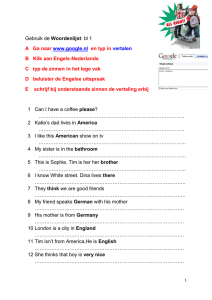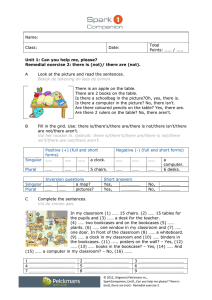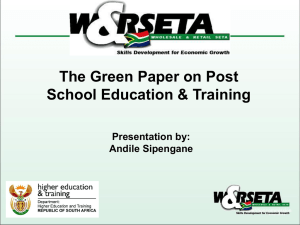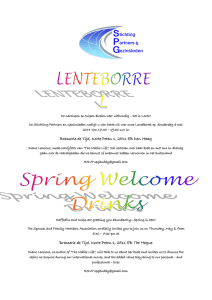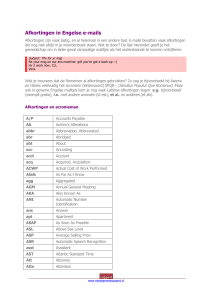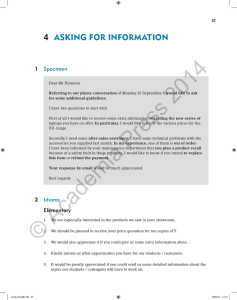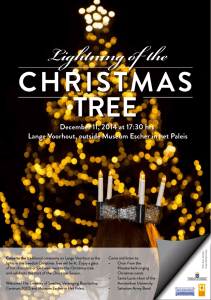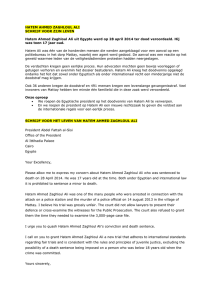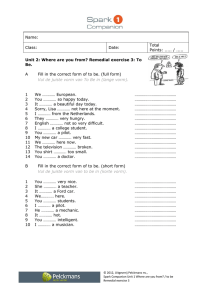Vragend en Ontkennend maken
advertisement
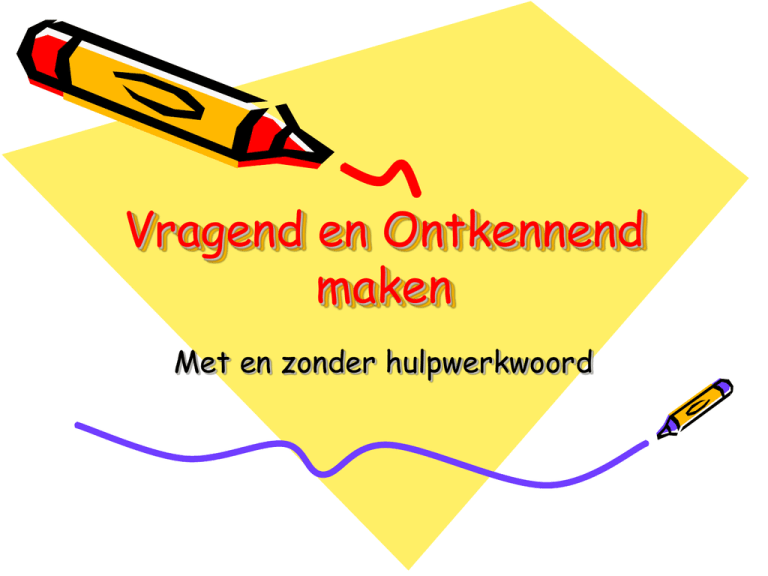
Vragend en Ontkennend maken Met en zonder hulpwerkwoord Vragend maken • In een vraag staat altijd een hulpwerkwoord voorop. • Als je geen hulpwerkwoord hebt gebruik je do/does/did en het hele werkwoord. • Bij het werkwoord ´to be´(am, is, are, was, were) krijg je nooit do/does/did. Hulpwerkwoorden zijn • • • • • can/could shall/should will/would may/might have/has/had • • • • do/does/did am/is/are, was/were must Zinnen met hulpwerkwoord • John is running home. Is John running home? • Karen can play the piano. Can Karen play the piano? • They have got two cars. Have they got two cars? Zinnen zonder hulpwerkwoord • You work very hard. Do you work very hard? • Jane goes to school by bike. Does Jane go to school by bike? • They talked about the new movie. Did they talk about the new movie? Zinnen met en zonder • John leaves at eight o’clock. Does John leave at eight o’clock? • My mother can speak French. Can my mother speak French? • We have got the best school. Have we (you) got the best school? • Susan worked at the supermarket. Did Susan work at the supermarket? Ontkennend maken • In een ontkennende zin zet je not achter het hulpwerkwoord. • Als je geen hulpwerkwoord hebt gebruik je do/does/did en het hele werkwoord. • Bij het werkwoord ´to be´(am, is, are, was, were) krijg je nooit do/does/did. Zinnen met hulpwerkwoord • My brother will send me a card. My brother will not (won’t) send me a card. • George should go home now. George shouldn’t go home now. • Sarah was wearing a new skirt. Sarah wasn’t wearing a new skirt. Zinnen zonder hulpwerkwoord • You learn maths and geography. You don’t learn maths and geography. • His father teaches English. His father doesn’t teach English. • The children went home early. The children didn’t go home early. Zinnen met en zonder • Charles loves Camilla. Charles doesn’t love Camilla. • Diana was a beautiful woman. Diana wasn’t a beautiful woman. • Harry has been to Australia. Harry hasn’t been to Australia. • I would buy a Ferrari. I wouldn’t buy a Ferrari.
